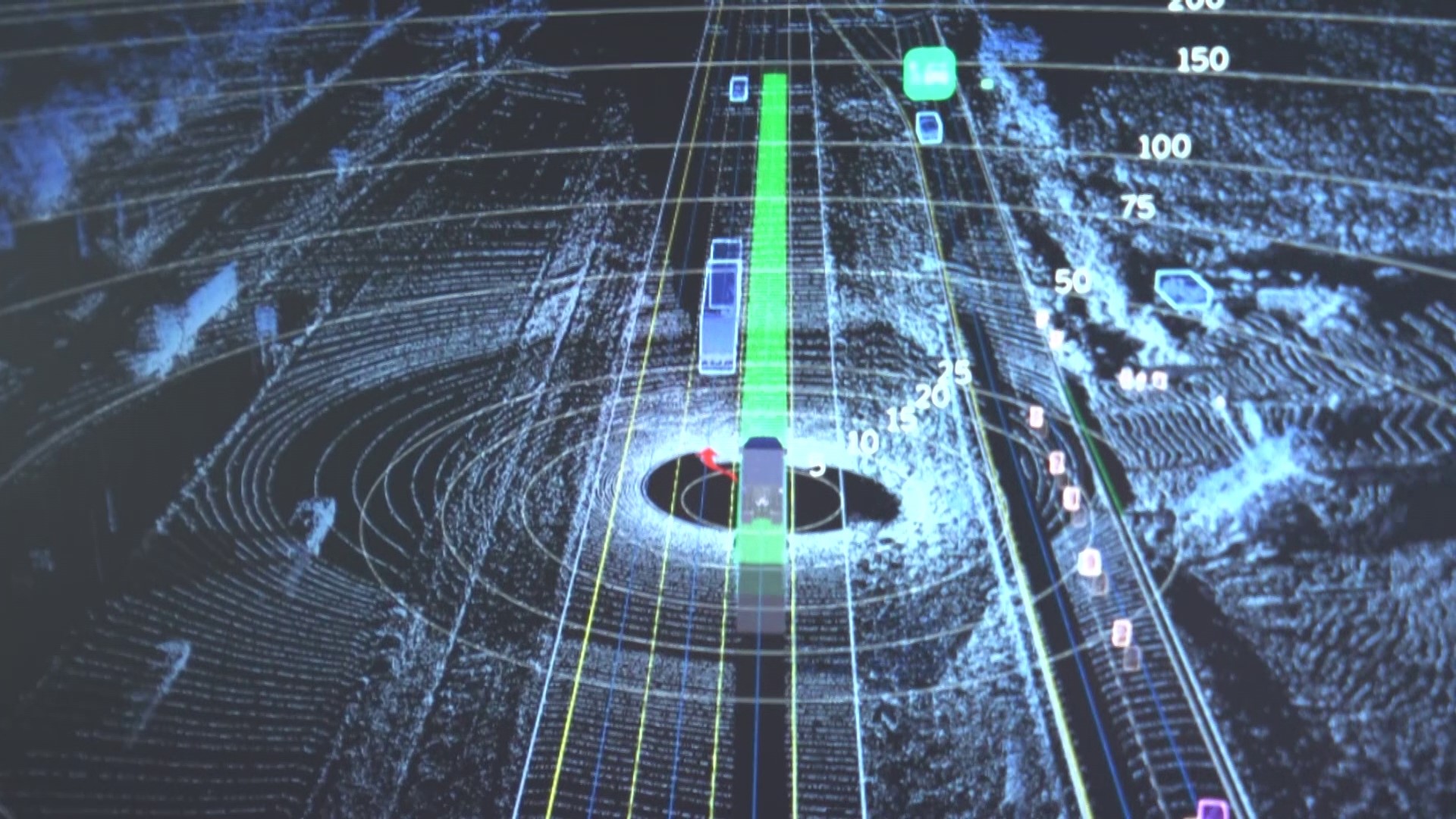PALMER, Texas — The concept of self-driving vehicles used to be a topic of the future, but not any longer -- and certainly not in Texas, which has become a magnet for tech companies working in the autonomous driving space.
Just a short, 30-mile drive down Interstate 45 from Downtown Dallas to the small town of Palmer, Texas, this future is idling at a terminal operated by Aurora, a transportation company that plans to have its fleet of autonomous trucks fully self-driving freights across Texas by the end of 2024.
"Autonomy is absolutely here," said Aurora president Ossa Fisher.
It's possible many Texas drivers have likely driven right alongside these autonomous trucks on highways and not even noticed: At the moment, to satisfy its own internal safety protocols, Aurora is currently running 75 autonomous truckloads across Texas each week for partners like FedEx, Uber Freight, Warner and Schneider, just to name a few. Along for every ride is a long-time driver and an operations specialist, who sit behind the wheel and passenger seat respectively to provide fail-safes, feedback and training for the Aurora systems -- as they truck along.
"We're driving autonomous loads everyday on Texas highways," said Fisher, noting that her company has already fully mapped out shipping routes from Dallas to Houston and back, and Fort Worth to El Paso and back.
And though humans currently sit in the cabs, it is indeed the technology that's doing the heaving lifting on these drives. In a ride-along during a haul in September, WFAA was able to observe the technology firsthand. Throughout the trip, the driver kept his fingers inches from the steering wheel, and his foot right near the pedal -- just in case he needed to take over. But he barely flinched; instead, it was the Aurora technology that wholly moved the truck, even changing lanes to avoid merging traffic.
Aurora's fleet does this by processing information acquired from long-range lidar, radar and cameras equipped onto each of its truck. Fisher said her trucks can see as much as four football fields ahead of their positions on the highway at a given time. Processing that information, she said, allows the truck to respond to route changes between 9 and 11 seconds faster than humans can.
"We can see a near 360-degree view of the world," said Fisher.
Close to 20 percent of the nation's freight drives through Texas, which explains how the state finds itself at the forefront of this trend. It helps, too, that state politics has long played an integral part in fostering an environment that supports trucking. Altogether, weather, favorable laws and strategic geographic trade partners made Texas an obvious choice for her company's headquarters, Fisher said.
Heck, even Texas truckers have said they are on board with this future, too.
Gary Babbitt spent more than four decades driving a truck. A former Texas and National Driver of the Year Award-winner, Babbitt said he drove 5.4 million miles during his career -- without a single accident. Now, he works in safety training, orientations, safety meetings, and truck inspections through Commercial Fleet Data Systems. He said he's done the research, and he thinks autonomous trucks are a necessary supplement to a crippling shortage of drivers.
"It's all about safety and saving lives," Babbitt said. "Sure, you're gonna have your doubters."
Critics worry about road safety, and technology that can be hacked. They note that autonomous driving is, so far, unproven in cold climates where ice and snow can make driving more difficult. Aurora has acknowledged this as a growth point it it will work to address.
"We have stayed away from ice and snow," Fisher said. "That is definitely the plan to bring it into the fold."
In the meantime, and in Texas anyway, doubters are largely being left behind in autonomous trucks' dust.
John Esparza, president of the Texas Trucking Association, said he welcomes his industry's automated future.
"That truck is already reacting to something I cannot even see out there that's occurring," he said. "[And] we cannot keep pace with the amount of freight coming through our state [as is]."
It's important to note, too, that truckers will remain part of the equation in the immediate future. As Aurora expands its planned roll-out across sunbelt states from coast to coast, its routes will be plotted as hub-to-hub deliveries, with human drivers taking shipments over at those ports and bringing them to their final destinations.
That model, Esparza noted, could go a long way toward improved work-life balance for truckers.
"It is both revolutionary and evolutionary," Esparza said. "You're going to see more opportunity for drivers to be home at night."

